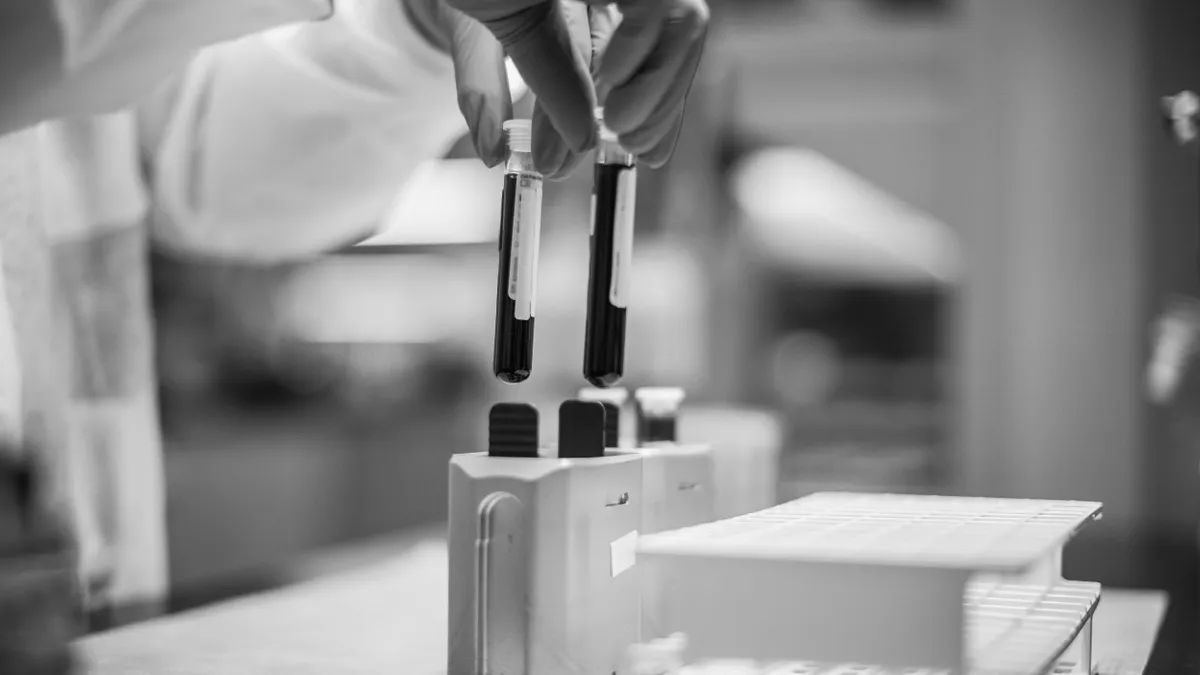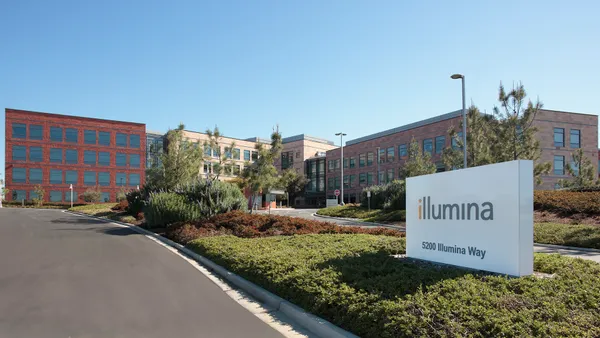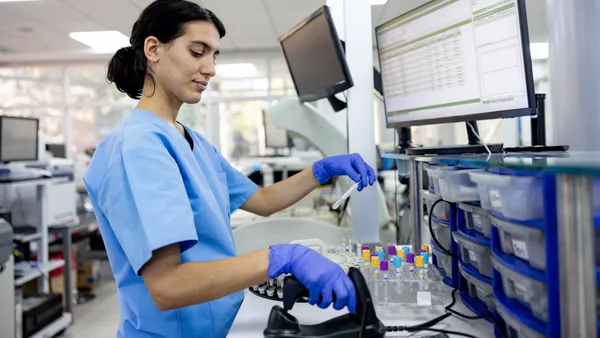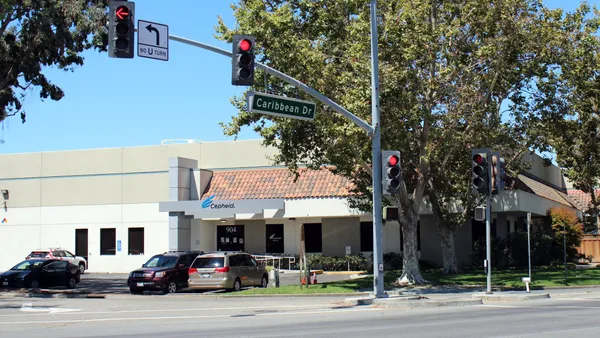Dive Brief:
-
Exact Sciences shared preliminary data on its multi-cancer liquid biopsy screening test on Thursday, triggering a surge in its stock price to close up 27%.
-
At the Cowen Liquid Biopsy Summit, Exact Sciences said its test detected six cancer types with 86% overall sensitivity and 95% specificity. The data suggest Exact Sciences has a shot at competing with the likes of Grail and Guardant Health for the liquid biopsy market, although management acknowledged it still has "a ton of work" to do.
-
Some of that work will focus on improving the ability of the test to detect early-stage cancer. Most of the samples tested by Exact Sciences were from late-stage cancer patients but the big opportunity, and more demanding challenge, is finding tumors before they spread.
Dive Insight:
Exact Sciences pioneered noninvasive cancer testing with its Cologuard stool-based screen for colorectal cancer, but looks set to face competition from companies with newer technologies in the coming years. Grail, the subject of a pending $8 billion takeover by Illumina, is developing a blood-based test designed to detect multiple cancers at their earliest stages, while Guardant is gunning for Cologuard's stool test turf directly.
A lengthy list of other companies including Freenome, Natera and Thrive Earlier Detection are also working on colorectal cancer initiatives. The blood tests are seen as "a potential existential threat to Cologuard's commercial positioning," according to analysts at Cowen.
This week, Exact Sciences showed it is responding to that threat and began the process of trying to deliver on its plan to become the dominant player in multi-cancer screening over the next five years.
Exact Sciences delved into its sample bank to create its multi-cancer test, resulting in a diagnostic that uses five methylation markers and three proteins to detect evidence of six tumor types. The test was first evaluated on a training set of 292 samples, 120 of them positive. That linked the test to a sensitivity of 87%.
A subsequent assessment against a 145-sample validation set found the test had a sensitivity of 83%. The overall sensitivity varied by tumor type, ranging from 78% for lung cancer to 90% for ovarian and pancreatic cancer. Sensitivity in samples from patients with esophageal, liver and stomach cancer fell between those two extremes.
The test achieved an overall specificity of 95%, although at Cowen's liquid biopsy event Exact Sciences CEO Kevin Conroy said some of the false positives could be samples from people with undetected cancer. The data were nonetheless strong enough to draw a positive reaction from analysts and investors.
"We are very enthused by the early data, and while a lot of work still needs to be done, [Exact Sciences] took a big step today to declare its intent to be a major liquid biopsy company," Cowen analyst Doug Schenkel and colleagues wrote in a note to investors.
Conroy acknowledged the preliminary nature of the results while also talking up the ability of the company to build on the early success and ultimately deliver a commercial product. "This is early data. There’s a ton of work that needs to be done. We have the samples to be able to do that," Conroy said at the Cowen event. Exact Sciences has 3,500 blood samples from cancer patients, including 1,400 from patients with stage 0 to II tumors.
Those samples from early-stage patients could prove valuable. Two-thirds of the samples used in the training and validation datasets came from stage III and IV cancer patients. It is potentially easier to detect signs of such advanced tumors in blood samples, inflating the test's sensitivity, and identifying such cancers is less valuable to patients. Early detection is needed to improve health outcomes.
Exact Sciences is doing more work across all four stages and further optimizing its markers. Rivals are engaged in similar work. Illumina, through Grail, is set to bring a test for detecting multiple early cancers in blood samples from asymptomatic people to market next year. At the Cowen event, Illumina CEO Francis deSouza called asymptomatic screening the biggest life science opportunity of our lifetimes.









